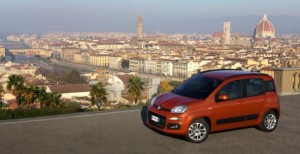Fiat has reached what it’s describing as a “historic” agreement with its union workers, a deal that could convince the maker to maintain a significant share of its production base in Italy.
The possibility of shifting production has been hanging like a Sword of Damocles over the bargaining table, Fiat CEO Sergio Marchionne taking frequent shots at the union – and at the work climate in Italy, in general – as becoming increasingly non-competitive.
But Marchionne – who also serves as chief executive of Fiat’s U.S. partner Chrysler – described the settlement as a “historic development for our company and its workers.”
“Today’s result shows the major steps that can be taken when we work together and all work in the same direction and when there is a real shared intent,” the CEO said in a statement announcing the settlement.
Fiat has broken with tradition in Italy, negotiating contracts on its own, plant-by-plant, rather than accepting an industry-wide agreement with its unions.
Marchonne has said there is no choice considering the increasing cost of producing vehicles in Italy. Fiat has been struggling to maintain sales and market share across Europe. It once could count on a strong domestic Italian market but even that foundation has been ripped away by the opening up of the European Union.
The outspoken, Canadian-educated executive has been using a carrot-and-stick approach to foster change. He has openly suggested Fiat might shift production out of Italy and could even move its headquarters to the U.S., most likely sharing the sprawling technical and management center Chrysler operates in the Detroit suburb of Auburn Hills.
Marchionne has laid out plans for the two automakers to boost sales to a collective 6 million – which he says is the minimum needed to achieve a profitable scale – up from 4.2 million this year. That would require increasing emphasis on emerging markets like China, Russia, Brazil and India – with more and more production shifting to those regions.
But Italian workers have also seen a dangling carrot, Marchionne promising to invest as much as 20 billion Euros, or $26.4 billion, in Italy to double production there if costs could be brought in line.
To prove his point, Fiat has already invested 800 million Euros to upgrade a plant in Pomigliano. That factory –where workers had already accepted a new, more efficient contract – today rolled out an all-new version of the Fiat Panda. The small city car had previously been built in Poland.

